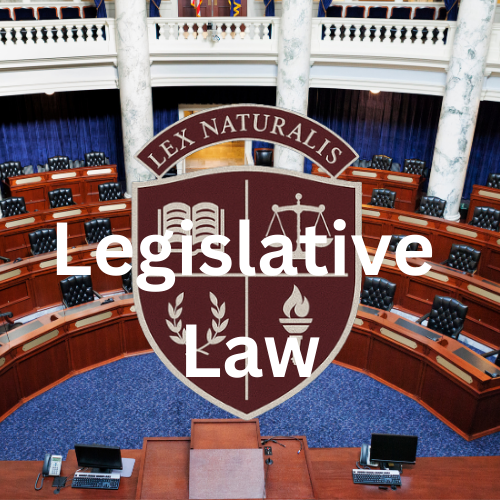Avoiding Ambiguity: Drafting for Clarity and Precision
- Dr. Byron Gillory
- Sep 10
- 4 min read

I. The Peril of Ambiguity
Law, by its very nature, must command with authority and bind with certainty. For if men know not what is required of them, or if magistrates interpret one statute in a hundred ways, the dignity of law dissolveth into confusion. Ambiguity in legislation is therefore not a minor blemish, but a fundamental defect. It rendereth statutes obscure, burdeneth courts with ceaseless disputes, and leaveth citizens at the mercy of arbitrary construction.
Sir William Blackstone declared that law ought to be “a rule of civil conduct prescribed by the supreme power in the state.” But a rule uncertain is no rule at all. A statute whose meaning is doubtful doth not prescribe—it merely puzzles. Thus ambiguity is a kind of legislative sin, for it betrayeth both the people and the constitution.
II. The Consequences of Unclear Statutes
When statutes are penned in vague or contradictory terms, several evils ensue:
Litigation Multiplieth — For where words admit of many meanings, each party contends for the one most favorable to his case, and the courts are left to divine the intention of legislators long departed.
Judicial Usurpation — Ambiguity inviteth the bench to step beyond interpretation into legislation, for the judge, compelled to choose among meanings, may in effect create new law. Thus the legislative power is silently transferred from the elected assembly to the judiciary.
Administrative Overreach — Agencies, finding broad or ill-defined mandates, expand their dominion without check, enacting regulations never contemplated by the legislature.
Public Distrust — Citizens, unable to discern their duties, regard law as a snare rather than a safeguard, and respect for authority waneth.
Thus from the seed of ambiguity groweth a harvest of confusion, litigation, and tyranny.
III. The Duty of Clarity
Clarity in law is not a matter of style, but of justice. The legislator owes it to the people to speak plainly, so that the rule may be known to all, obeyed by all, and enforced by none arbitrarily. As Blackstone observed, the excellence of a law consisteth not in its length or its ornament, but in its certainty and intelligibility.
This duty of clarity requireth:
Precision of Terms — Employing words defined in law or in common usage, avoiding vagueness and obscurity.
Coherence of Provisions — Ensuring each section harmonizes with the rest, so that no contradiction confoundeth the reader.
Simplicity of Expression — Choosing the straightforward over the convoluted, for brevity and plainness serve the law better than florid rhetoric.
Anticipation of Application — Considering how courts and agencies will construe the statute, and drafting so that little is left to conjecture.
IV. Legislative Law as Guardian of Precision
Herein lieth the great work of Legislative Law. For the Legislative Counselor is trained not in advocacy alone, but in authorship; his art is to craft statutes that speak with clarity, precision, and authority.
Where the ordinary legislator may be tempted to draft broadly, to appease factions or to leave room for discretion, the Legislative Counselor insisteth on discipline. He seeth ambiguity as a breach of trust and a seed of litigation. His charge is to preserve the prerogative of the legislature by denying to the courts the opportunity of rewriting law under the guise of interpretation.
Thus Legislative Law prevents misinterpretation not by restraining judges, but by restraining ambiguity.
V. Historical Lessons
History provideth examples in abundance. The clarity of Magna Carta secured liberties for centuries, while vague statutes of attainder became engines of oppression. In the American context, the Fourteenth Amendment’s guarantee of “equal protection of the laws,” though noble in aspiration, hath spawned endless litigation due to its breadth and ambiguity. By contrast, the Sherman Antitrust Act’s failure to define “restraint of trade” left courts to fill the void, thereby shaping whole industries by judicial fiat.
These examples remind us: when legislators are imprecise, judges and administrators will legislate in their stead.
VI. Gillory & Associates: A Vanguard of Statutory Clarity
At Gillory & Associates, we hold clarity to be the very soul of legislation. Our task is not merely to produce words for the statute-book, but to craft instruments of governance that are clear, durable, and resistant to misinterpretation. Through the Blackwell Institute for Legal Studies, we train a new profession of Legislative Counselors, skilled in the discipline of precision, devoted to preserving legislative supremacy by removing ambiguity at the root.
For in our judgment, every ambiguous statute is a silent cession of power—away from the people’s representatives and into the hands of judges and bureaucrats. By contrast, every clear statute is a monument of legislative integrity, restoring the proper balance of constitutional order.
VII. Conclusion: Clarity as Liberty
Let it be remembered: ambiguity is the enemy of liberty. For where statutes are unclear, the citizen is left uncertain, the judge grows sovereign, and the bureaucrat reigns unchecked. Clarity, by contrast, is the friend of freedom; it alloweth the people to know the rule that governs them, to order their lives with confidence, and to hold their rulers accountable.
The true vocation of Legislative Law is therefore to secure clarity and precision, not as matters of style, but as bulwarks of justice. For in clarity, law is preserved; in ambiguity, law is lost.
Thus we proclaim: To draft clearly is to legislate justly. And to legislate justly is to preserve the rule of law against every usurpation.
Comments